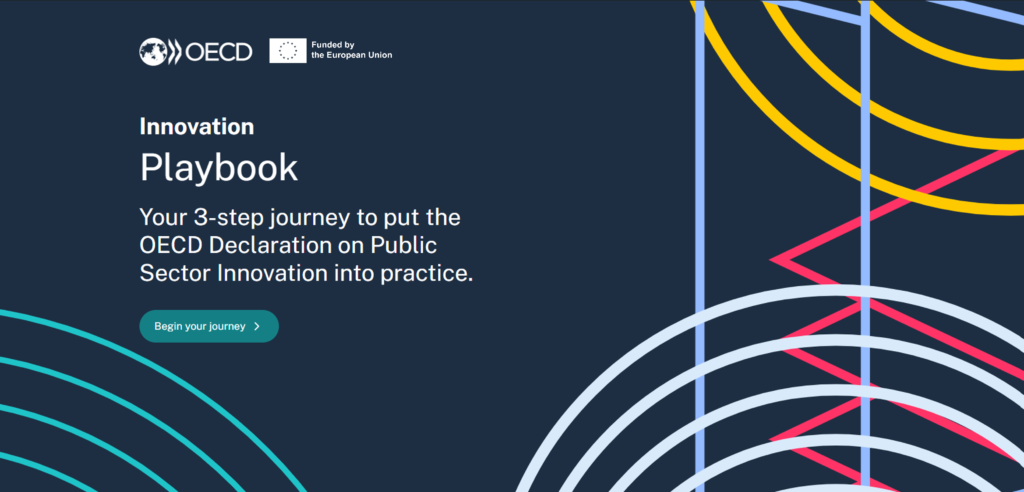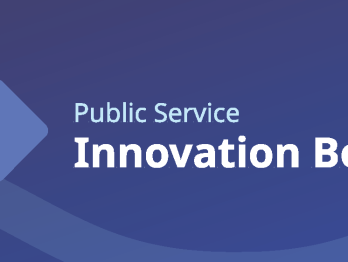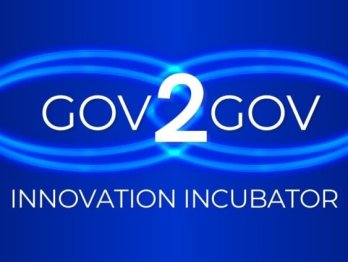The OECD Innovation Playbook Goes Digital: Virtual insights for real-world impact

“It’s nice in principle, but where do we start?” In our collaboration with countries, this is a question we often encountered in relation to the application of the OECD Declaration on Public Sector Innovation. We learned that identifying the first step is often the hardest. In response, the OECD Innovation Playbook 1.0 was launched in 2022, offering public officials and managers a solid starting point to apply these principles effectively.
Today, we’re excited to introduce the next chapter: the digital version of the OECD Innovation Playbook, supported by the European Union’s Horizon Europe programme. This isn’t just about going digital for the sake of it – it’s about creating a tool that guides users into the digital space, offering tailored insights that can be brought back to reality, to fuel real-world innovation. This enhanced version provides improved access, deeper customisation, and a truly personalised journey, helping you turn digital learnings into tangible actions.
Drawing on insights from 20 countries
From its inception, the Innovation Playbook (as an initiative) has been a collaborative effort, shaped by public sector innovators from 20 countries – Australia, Austria, Belgium, Brazil, Chile, Colombia, Czechia, Denmark, Finland, Germany, Greece, Italy, Latvia, Luxembourg, Netherlands, Peru, Portugal, Romania, Spain, and Sweden. This collective expertise has not only made the Playbook more relevant and adaptable globally – fostering a vibrant community united by a common vision – but also ensured that it remains a tool with users at the center.
More intuitive, personalised, accessible
Our goal was to make the user journey clearer, more intuitive, personalised, and accessible. While digitalisation offers natural benefits – such as adjustable text size and automated translations through browser extensions – we wanted to push beyond that. By scanning the diverse user contexts, the digital Playbook provides tailored recommendations which can be compiled into a handover document to guide real-world actions. To ensure we delivered on our promises, we further conducted extensive accessibility and usability testing and added feedback features to allow us to collect input and continuously improve the Playbook.
Built on experimentation and iteration
The co-creation process was both experimental and iterative. Working closely with our power users, we pinpointed key user needs and expectations, and refined the Playbook through multiple iterations. These sense-making sessions were instrumental in identifying unanticipated applications and defining desirable features for a proof of concept.
From initial mock-ups to an alpha prototype, we repeatedly tested with government partners, including our soft launch which gathered input from participants across 92 countries. Each iteration brought us closer to a tool that connects digital insights with on-the-ground innovation, turning a virtual experience into a resource that drives real-world progress.
We would like to thank the participants of the Working Group of Innovation Governance, in particular the countries that volunteered as power-users, playing an active role in the co-creation and experimentation process: Luxembourg, Brazil, Sweden, Chile, Colombia, and Spain.
This project and blog are funded by the European Union. Its contents are the sole responsibility of the OECD and do not necessarily reflect the views of the European Union.


Digital OECD Innovation Playbook
Launched: 8 October 2024








